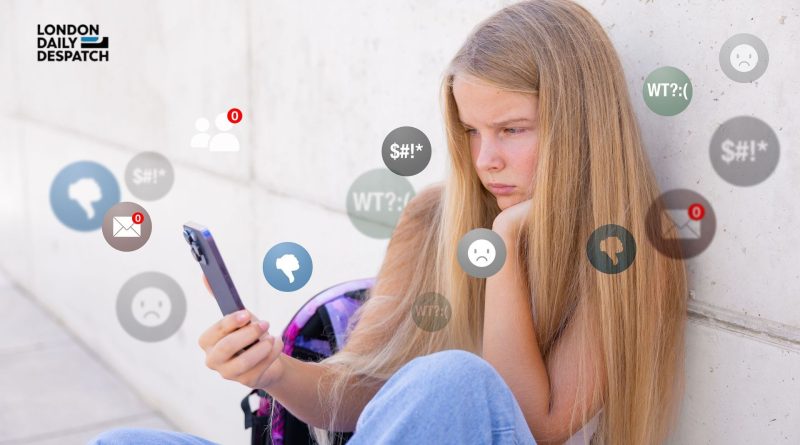Should Children Be Banned from Social Media? A Growing Debate
Social media use among children is a hot topic today. With the rise of mobile devices, kids are more connected than ever. Tablets and smartphones are often given as gifts during holidays. As we step into 2024, there is a clear trend: most teenagers have social media accounts, and over 60% of children aged 8 to 11 engage in social media activities. This raises important questions about safety, mental health, and how technology affects young minds.
Age Restrictions and Reality
Social media companies set age restrictions for their platforms. Typically, users must be at least 13 years old to create an account. However, these rules are not always effective. Many children easily bypass these restrictions. They create fake profiles or use their parents’ accounts to gain access. This has drawn the attention of regulators.
In the UK, Ofcom is responsible for online safety. They plan to introduce measures aimed at making platforms verify user ages. In a recent interview with The Telegraph, Jon Higham, Ofcom’s head of online safety policy, pointed out that children often lie about their age. This makes it easier for them to circumvent the controls meant to protect them.
The Complexity of Banning Children from Social Media
Banning children from social media isn’t a simple solution. There are valid arguments both for and against such a decision. Each side offers important points that deserve attention.
Arguments For Banning Children from Social Media
- Protecting Mental Health
One main concern is the effect of social media on children’s mental health. Research shows a link between excessive social media use and rising levels of anxiety and depression among young people. Kids can feel overwhelmed by unrealistic standards of beauty, wealth, and success portrayed online. The pressure to gain likes and followers can seriously impact their self-esteem and emotional well-being.
- Exposure to Harmful Content
Even with age limits in place, children can easily access inappropriate or harmful content. They might come across violence, explicit material, or dangerous “challenges.” Online bullying and harassment are also significant issues. Social media can sometimes serve as a breeding ground for such behaviors, leaving children vulnerable to potential threats.
- Lack of Emotional Maturity
Younger children may not have the emotional maturity needed to navigate social media safely. They might not fully grasp the risks associated with sharing personal information or interacting with strangers. Parents can’t always monitor their children’s online activities, leaving them potentially exposed to various dangers.
Arguments Against Banning Children from Social Media
- Digital Literacy and Communication Skills
Social media is a crucial communication tool today. Banning children from these platforms may limit their development of essential digital literacy skills. These skills are important for personal and future professional communication. Many educators use social media to enhance learning, and being unable to navigate these platforms could put children at a distinct disadvantage.
- Maintaining Social Connections
Social media helps kids stay connected with friends. As face-to-face interactions become less common, social media provides a way to engage with peers. During times of social isolation, these platforms allow children to share experiences and find support. A ban could cut them off from vital social connections.
- Accessing Educational Opportunities
Social media platforms are not just for entertainment; they also offer numerous educational resources. From YouTube to TikTok, children can learn various subjects and skills through engaging content. Restricting access to these platforms may limit their exposure to valuable learning opportunities.
- Parental Control and Guidance
Instead of an outright ban, experts advocate for a balanced approach. Parents can guide their children’s social media use actively. With appropriate tools, they can monitor usage, block inappropriate content, and set time limits. Some platforms offer parental controls that empower caregivers to manage their children’s access effectively. Rather than a complete ban, promoting responsible use can equip children with important skills.
The Role of Technology and Regulation
As social media continues to evolve, regulators are taking newer steps to safeguard younger users. Ofcom has plans to implement facial age-estimation technology to help prevent underage access. Higham’s comments highlight the importance of verifying user ages more effectively. This could enforce existing restrictions and protect children from harmful content.
Additionally, introducing “digital well-being” tools and educational programs could better prepare children to use social media responsibly. Rather than simply banning them from these platforms, initiatives can create safer, controlled environments for children. This ensures they can engage positively while being shielded from inherent dangers.


Pingback: achat kamagra generique
Pingback: enclomiphene canada online pharmacy
Pingback: cheap androxal overnight no rx
Pingback: buy cheap dutasteride retail price
Pingback: buy flexeril cyclobenzaprine usa buying
Pingback: how to order gabapentin generic sale
Pingback: buy fildena how to purchase viagra
Pingback: cheapest buy itraconazole purchase singapore
Pingback: how to order avodart australia price
Pingback: get staxyn cheap in canada
Pingback: cheap rifaximin usa online
Pingback: cheapest buy xifaxan buy sydney
Pingback: obecný kamagra není nutný předpis